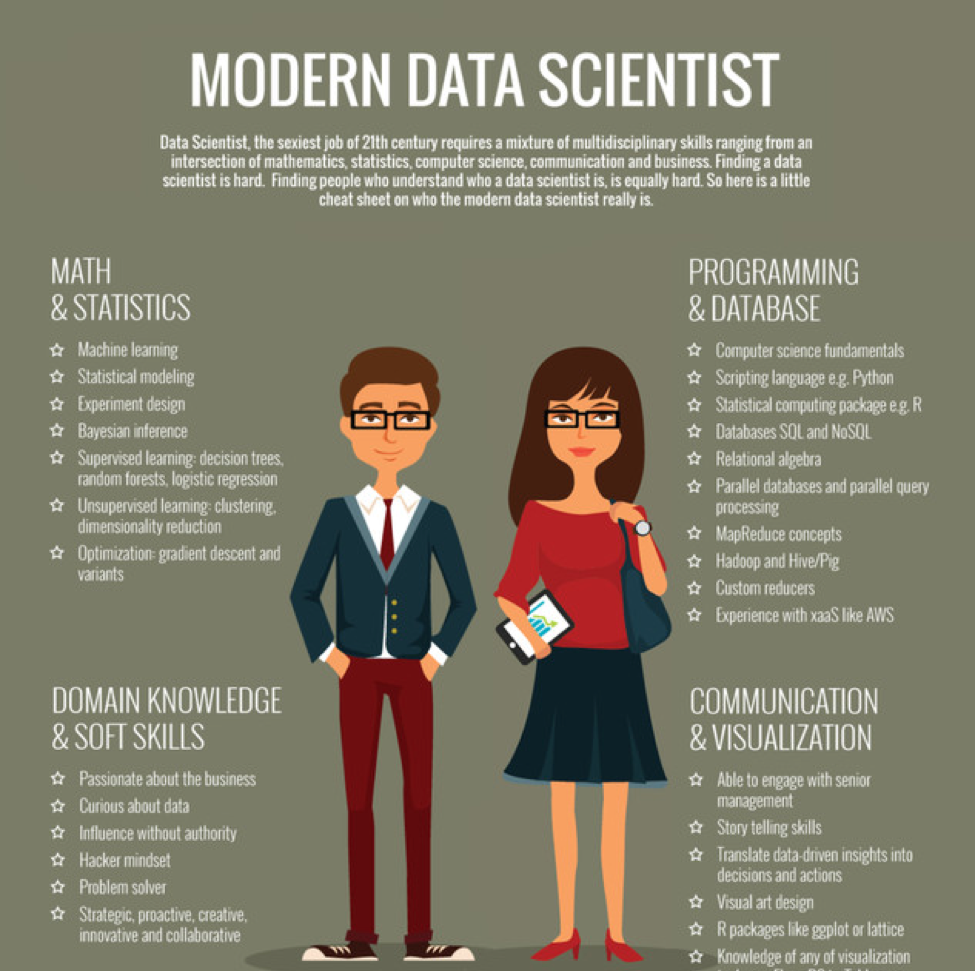Many ways to become a data scientist
Something that many employers are not aware of is that there is more than one path to become a data scientist. Data science, after all, is an umbrella term that encapsulates other fields, such as AI, machine learning and statistics. Since the rise of popularity of data science many people try to promote themselves as a data scientist, whereas in the past they might have used a different term. Also, many people are trying to get the right education. This is one of the reasons I developed courses, such as Beyond Machine, to train people form all background (software dev, to no technical experience) in data science.
Understanding someone’s background better can also help you make better hiring and management decisions.
[sc_fs_faq sc_id=”fs_faqq5b5dv326″ html=”true” headline=”h3″ img=”” question=”So, what are the different tribes of data scientists?” img_alt=”” css_class=”” ]There are three main types you encounter:
1) The computer scientist
2) The statistician
3) The quantitative specialist[/sc_fs_faq]
Let’s talk about each one in turn.
The computer scientist data scientist
This is someone who has a background in computer science. They will have done the Bachelor’s in computer science, but later converted to machine learning by doing an MSc in machine learning or even a PhD. These are people who have solid technical skills, know how to code and how to use databases. They can be good all arounders and good value for money for startups that need to get good value for money. However, they lack formal training in statistics. So, this means that if you are actually facing a problem related to statistics (e.g. research design) then these are not the people for you.

The statistician data scientist
These are data scientists whose training (BSc, MSc or PhD) has focused on statistics. They have a solid background in both the theory of data science and maths. They are the best people to hire for specific problems such as: statistical modelling, research design, significance testing. If for example you want to develop a new methodology, let’s say, for forecasting elections, then these are your people. However, in contrast to the previous category, they will probably not have much experience with machine learning or predictive modelling. If, for example, you wanted to predict bitcoin prices, you might better off going with a machine learning specialist.
The quantitative specialist data scientist
These are people with background in a quantitative discipline (physics, chemistry, civil engineering or other) who decided to become data scientists because they like the field and the job prospects. It is really difficult to provide an archetype of this category, as the skills can vary widely from one candidate to the next. In my experience, it is usually physicists who make the best transition to data science. The reason is that physics is full of applied math (calculus, probability theory, linear algebra, etc.), so physicists find it easy to read through all the relevant literature. A good guide here is to try and see whether they have any projects on Github, or Kaggle, as this will demonstrate real interest in the subject.

The right data scientist for you
There are many ways for someone to become a data scientist and the path they choose will determine their strengths and weaknesses. In this post I gave a brief overview of the main tribes that exist in the field.
If you are interested about this topic then I would urge you to buy my book “The Decision Maker’s Handbook to Data Science”, or go to one of the seminars organised by the Tesseract Academy, where I explain in detail the different kinds of data scientists, how to hire them, and how to manage them. Choosing the right data scientist can be the deciding factor between growth and stagnation in a data-driven business.

